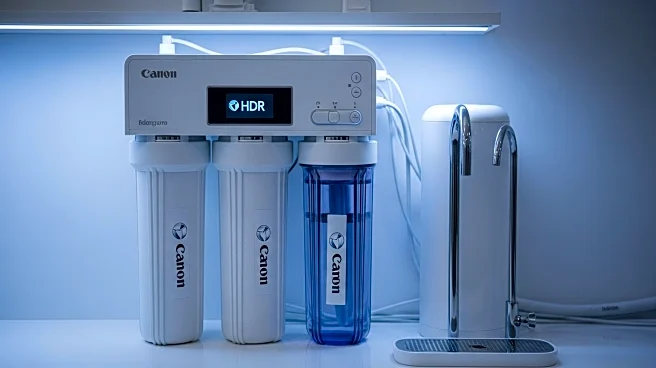What's Happening?
The Dedham-Westwood Water District in Massachusetts has reached a settlement with 3M Company, securing over $4.9 million in compensation for PFAS contamination linked to aqueous film-forming foam (AFFF). The district initiated legal action in February 2023, joining numerous other water providers in a multidistrict litigation case in South Carolina. The settlement will be disbursed in installments, with the first payment of $984,124 expected this month. The funds are intended to help offset the $15.55 million cost of planned PFAS treatment upgrades at the White Lodge Water Treatment Facility. These upgrades are partially funded by a 20-year interest-free loan from the Massachusetts Clean Water Trust. The district continues to monitor PFAS levels at its treatment plants, ensuring compliance with Massachusetts' maximum contaminant level of 20 parts per trillion.
Why It's Important?
This settlement is significant as it addresses the financial burden of PFAS contamination on local water districts. PFAS, or per- and polyfluoroalkyl substances, are persistent environmental pollutants linked to adverse health effects. The funds from 3M will aid the Dedham-Westwood Water District in implementing necessary treatment upgrades, although they will not cover the entire cost. This case is part of a broader legal effort by water providers to hold manufacturers accountable for PFAS contamination. The outcome could influence future litigation and regulatory actions concerning PFAS, impacting public health policies and the financial responsibilities of chemical manufacturers.
What's Next?
The Dedham-Westwood Water District will proceed with the construction of PFAS treatment upgrades, supported by the settlement funds and the loan from the Massachusetts Clean Water Trust. The district will continue its monthly monitoring of PFAS levels to ensure compliance with state regulations. The broader multidistrict litigation in South Carolina will continue, potentially setting precedents for other water districts seeking compensation for PFAS contamination. The outcome of these cases could lead to increased regulatory scrutiny and financial liabilities for companies involved in the production and use of PFAS.










